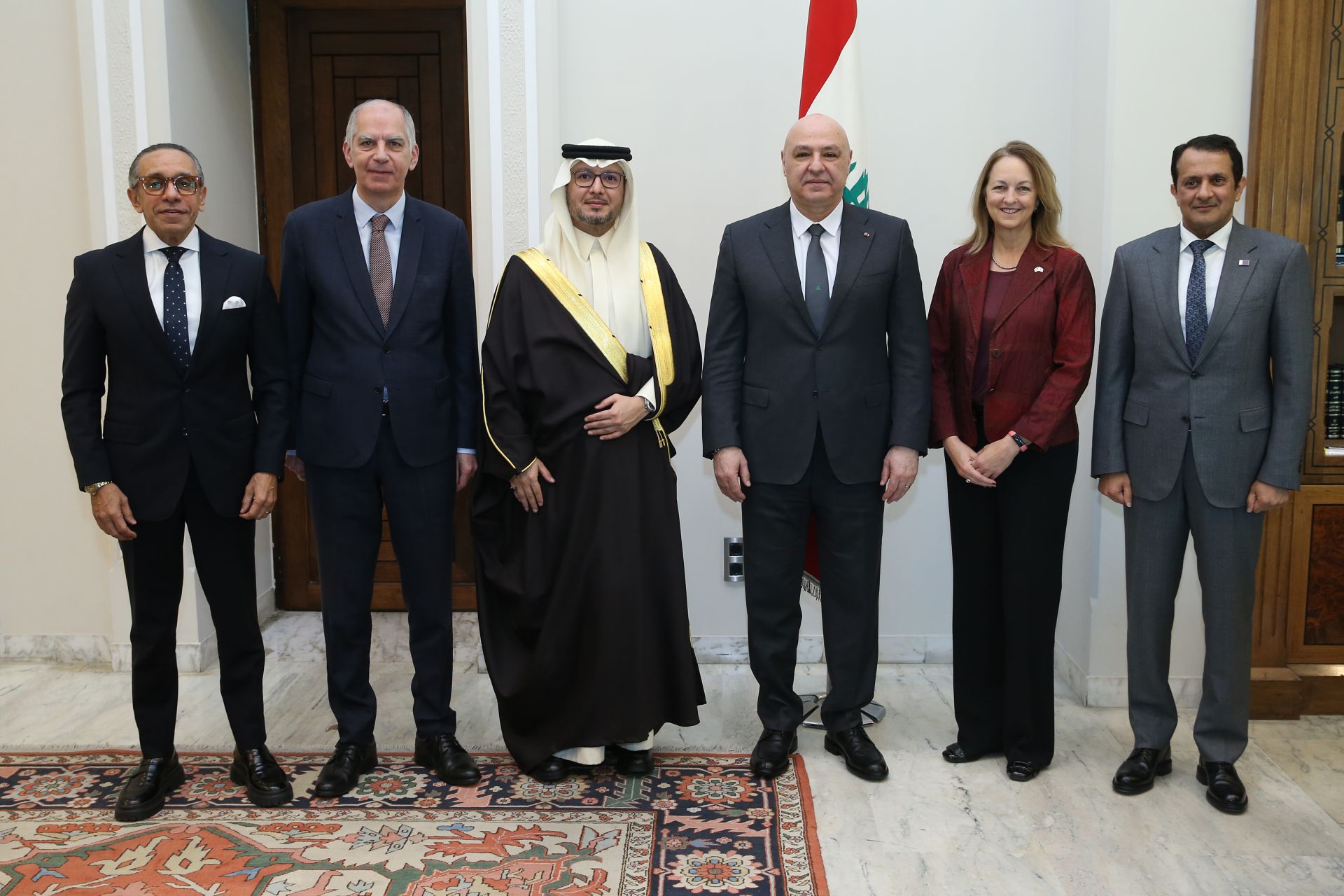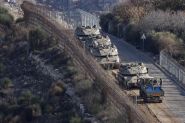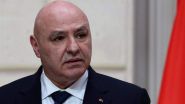
President Joseph Aoun on Monday reiterated the Lebanese Army’s responsibility for securing the country’s borders, emphasizing its full readiness for accountability. Addressing the issue of Hezbollah’s weapons, Aoun stated that any resolution must be discussed among the Lebanese.
President Aoun voiced concern that Israeli troops may not fully withdraw by a truce deadline the following day, saying the issue of Hezbollah's weapons was a matter for the Lebanese.
"We are afraid that a complete withdrawal will not be achieved tomorrow," Aoun said according to a statement from the presidency, adding that "the important thing is to achieve the Israeli withdrawal, and Hezbollah's weapons come as part of solutions the Lebanese agree on."
The president vowed that no Israeli presence would remain on Lebanese soil.
He insisted that diplomatic avenues must be pursued to resolve tensions, ruling out war as a viable option. The president urged sponsors of the ceasefire deal — the United States and France — between Israel and Hezbollah to help pressure Israel to withdraw troops by the February 18 deadline.
"We are continuing contacts on several levels to push Israel to respect the agreement and to withdraw on the scheduled date, and return the prisoners," Aoun said, according to a presidency statement.
"The sponsors of the deal should bear their responsibility to assist us," he added.
During his meeting with UNIFIL Head of Mission General Aroldo Lázaro Monday, the President reiterated his strong condemnation of the attack on the UNIFIL convoy by Hezbollah partisams protesting the suspension of flights between Lebanon and Iran. He emphasized that ongoing investigations, involving several detainees, aim to uncover the full details of the incident and ensure those responsible are brought to justice.
Quintet Committee Ambassadors
President Aoun also met with ambassadors from the Quintet Committee (Saudi Arabia, Qatar, Egypt, the United States and France) to discuss ongoing security and diplomatic efforts.
Following the meeting, Egyptian Ambassador Alaa Moussa strongly condemned the recent attack on UNIFIL, calling it “unacceptable” and insisting that those responsible must be held accountable.
“We listened to the president’s assessment of recent security incidents; he reaffirmed the state’s determination to extend its authority across all Lebanese territories, ensuring that everyone is subject to the law,” Moussa said in a press statement after meeting the president.
Moreover, the ambassador reiterated the Quintet’s full commitment to supporting Lebanon in its new phase, standing by the Lebanese state. He also emphasized ongoing diplomatic efforts to push for Israel’s complete withdrawal, pledging continued engagement with all parties to achieve this goal.
Moussa further affirmed the Quintet’s dedication to Lebanon’s reconstruction, stressing that all efforts must be conducted under the full supervision of the Lebanese state.
Economic and Social Reforms
In a separate meeting, Aoun engaged with the Economic and Social Council, calling for national unity and collaborative efforts to restore Lebanon’s stability. He urged constructive criticism to guide the nation toward meaningful reforms and encouraged active citizen participation in state-building.
Reaffirming his role as president for all Lebanese, Aoun emphasized the importance of upholding democracy, ensuring respect for the rule of law and fostering economic stability as fundamental pillars for Lebanon’s progress.
Additionally, the president emphasized Lebanon’s diverse societal makeup and the urgent need to rebuild trust between the state, its citizens and the international community.
In parallel, the council unveiled a comprehensive reform roadmap aimed at revitalizing the economy, strengthening governance and addressing key social challenges. The plan focuses on encouraging investment, fostering public-private partnerships and integrating sustainable growth with social justice and environmental responsibility. Key measures include restructuring the banking sector to protect depositors, implementing labor market reforms to combat unemployment and digitalizing public services to enhance efficiency.
The roadmap also prioritizes housing and healthcare accessibility, national economic branding, structured refugee repatriation, decentralization and state-led reconstruction efforts.



Comments